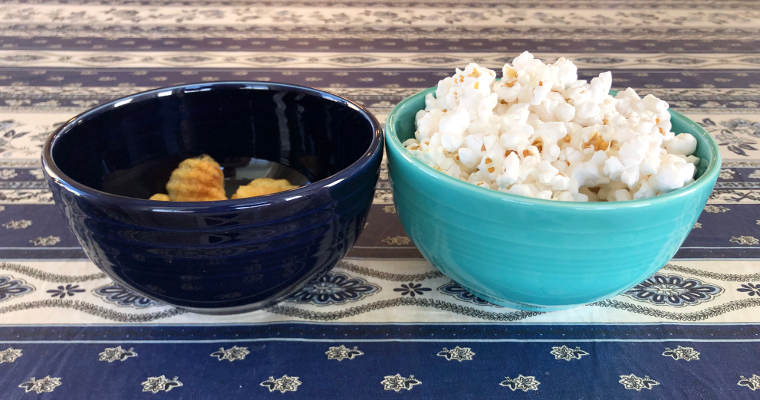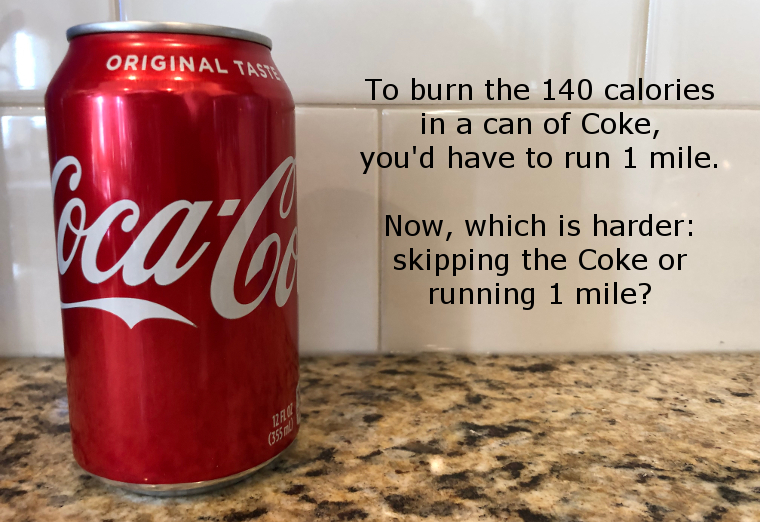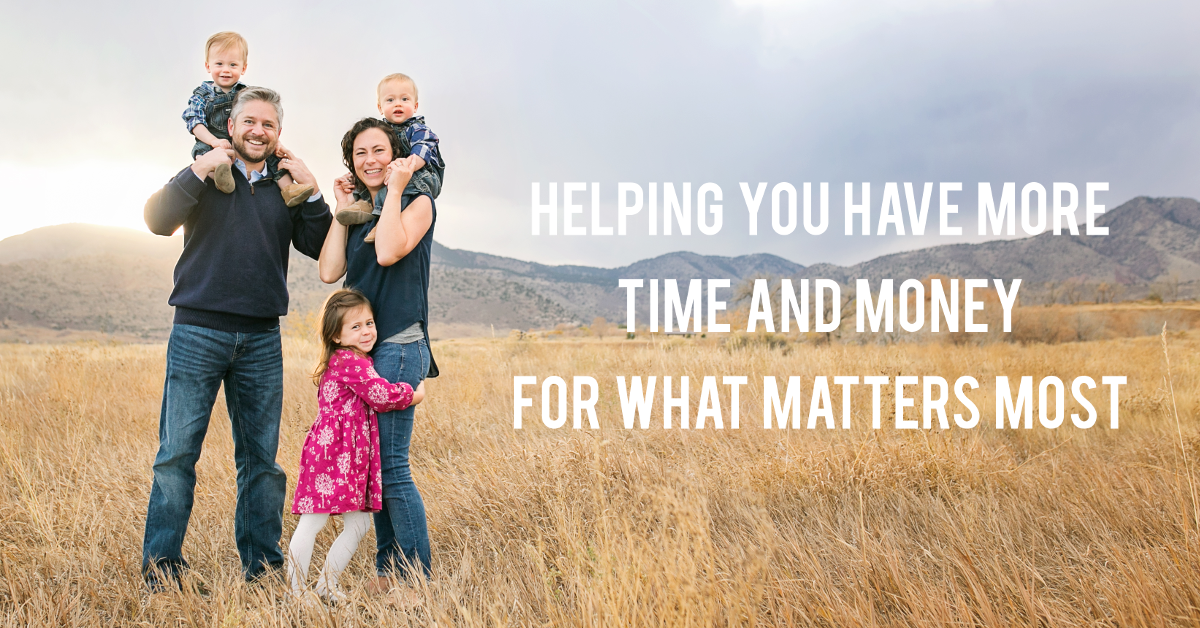I used to be one of those annoying people who can eat anything without gaining wait. But over the past several years, that changed. And I developed . . . some cushion. Specifically, I was 20 pounds above my desired weight. But I stumbled into an approach that enabled me to lose 20 pounds in 42 days and keep that weight off for the past three months.

From a weight loss perspective, these chip and popcorn snacks are equivalent. Which would you prefer?
This method has allowed me to eat what I like. I haven’t worked out any more than usual. And it has saved me time and money.
Sounds too good to be true? Well, it’s not without tradeoffs. But it’s the method for me. And if you’d like to trim down, it might be the method for you, too.
Background
Before I describe the method I used to lose 20 pounds, let me briefly mention the confluence of factors that enabled me to stumble into it.
1. Ascetical Undertakings
Five months ago, a friend in my men’s group invited/challenged us to a ninety-day spiritual exercise for men. It was awesome. The full scoop there is a story for another day.
But one aspect of the program was ascetical practices including not eating between meals and not having alcohol, desserts, or sweet drinks, except sometimes on Sundays.
Within a couple days of embarking on the program, I noticed that I had lost a few pounds. Since I hadn’t changed my exercise habits, I realized the weight loss must have to do with my change in eating habits.
2. Art of Manliness Podcast on Calories
About that same time, a buddy shared this Art of Manliness podcast with me: How to Lose Weight, and Keep It Off Forever. The guest was Layne Norton, a professional bodybuilder and a doctor of nutritional science.
Layne couldn’t have been clearer: the key to losing weight is consuming fewer calories than you burn. I was shocked. I thought calorie-counting was a notion of the past, long discredited. Turns out, I was wrong.
Layne told a story that drove his point home. A professor he interviewed sought to prove that weight loss is all about consuming fewer calories than you burn. To that end, he performed an experiment on himself. He changed his daily diet to include only junk food, a protein shake, and a fiber supplement. But, importantly, he consumed only 1,800 calories per day of those things.
The result? He lost 30 pounds. How is that possible? Because 1,800 calories are below the number of calories he burned each day.
What’s more, the professor’s health improved as indicated by a dramatic improvement in all his blood markers. Turns out being overweight is worse for your health than weighing less, even if the way you got to the lower weight was arguably the worst way possible: by eating mostly junk food.
Layne reasonably argued that the reason any diet works—no carb, carb only, whatever—is because, for that particular person, that particular diet causes them to take in fewer calories than they expend.
Considering an Approach that Would Work for Me
Until then I honestly didn’t know how to lose weight. Fewer carbs? More protein? Less fat? More fat?
But then I got it: consume fewer calories than you burn. Create a calorie deficit. Simple. Not easy, but simple.
The question, then, was: what type of approach would work for me?
Knowing myself, a diet would not work for me if it required a significant time investment. Nor if I had to eat lots of leafy vegetables, which I mostly dislike. Nor if I had to forgo carbs, which I really like.
I, personally, would rather eat nothing—literally—than a meal with lots of vegetables and no carbs. And that truth helped me find the perfect diet for me.
My (Efficient) Approach: Eat What You Like, Just Eat Less of It
The approach I’ve taken to losing 20 pounds and keeping the weight off is to continue to eat the things I like but to eat less overall. Eating no pizza is depressing. Eating two slices instead of four I can live with.
Here’s what my days have looked like in the weight loss and weigh maintenance phases vs. what I was doing before:
| When I was 20 Pounds Overweight | When I was Shedding 20 Pounds | As I’ve Maintained My Desired Weight | |
|---|---|---|---|
| Breakfast | Moderate breakfast | No breakfast | Usually no breakfast or a protein shake (here's my favorite) |
| Mid-morning snack | Almost always | Never | Never |
| Lunch | Good-sized lunch | Moderate-sized lunch | Good-sized lunch |
| Mid-afternoon snack | Almost always | Never | Never |
| Dinner | Large dinner | Moderate dinner | Good-sized dinner |
| Pre-bedtime snack | Always and high calorie | Never | Always but low calorie |
| Drinks with calories? | Sometimes | Never | Very rarely |
| Alcohol? | About 2 daily | Very rarely | About 1-2 daily |
| Sweets? | Frequently | Never | Very rarely |
As you can see, my main strategies for limiting calorie intake have involved:
- Fewer meals. Skipping breakfast was tough the first week. But I quickly got used to it and don’t miss it now. You might think you could never do that and will get hangry. Maybe. But maybe not. Give it a week. You might be surprised.
- Snacks. I’ve mostly stopped eating snacks. I used to eat a bunch of potato chips before bed. Turns out they are super high calorie! 😊 Now I eat a couple cups of popcorn, which I also enjoy and which have far fewer calories.
- Sweets. When I’m in the habit of eating sweets, I crave them. But when I stop eating them for a while, I rarely crave them. My favorite substitution has been to blend a frozen banana with a little water. It satisfies that craving in many fewer calories (and is surely better for me).
- Drinks. Eliminating caloric drinks is a relatively easy way to slash calories. When I shared this weight loss approach with my dad, he tried it and lost 15-20 pounds fairly quickly and attributes a lot of that loss to eliminating caloric drinks. He has switched to flavored water. I love sparkling water, which has been my go-to drink along with coffee and tea.
Benefits and Detriments
This approach to weight loss is not for everyone. But it works well for me. Is it for you? Here’s an overview of its main benefits and detriments which you can use to help answer that question:
Detriments
- Hunger. The main difficulty with this method of weight loss is that you will experience hunger pains during the weight loss phase. They are strongest in the first 1-2 weeks, then lessen. They aren’t fun. (But they subside in the maintenance phase.) You have to try to appreciate them as a sign that your discipline is working.
- Cold feet. I, at least, had cold hands and ice-cold feet during the weight loss phase. It was winter. But a known side effect of significant fasting is cold extremities.
- Muscle loss. Right before I went on this diet, I had achieved my all-time maximum strength, as I discussed in the post How to Get Stronger in Just 20 Minutes per Week. Unfortunately, I experienced about a 10% loss in strength as a result of this diet. That’s because muscle is broken down for energy when calories are too low. I lost more fat than muscle so am okay with the result. But I’ve since learned that to preserve muscle while losing weight, you need to lose weight more slowly than I did and/or consume a ton of protein on the way down. Lesson learned.
- New wardrobe. By the end of my diet, my pants were all too big and I had to buy new ones. 😊 A good problem to have, but something to budget for, I guess. . . .
Benefits
- Health and What Matters Most. As with any successful diet, the main benefit is increased health. As I noted above, losing weight is likely to benefit an overweight person even in the worst-case scenario of losing the weight via a junk food-only diet. In most cases, the pursuit of what matters most is benefited by being healthy.
- Physique. Your physique will improve as well even in the worst-case scenario of losing muscle along with fat as I did.
- Saves Time. Many diets require time-intensive food prep and/or increased workout time. This diet requires neither. On the contrary, it even saves time when you skip meals or snacks. I can’t imagine a more efficient weight loss program.
- Saves Money. Many diets require buying special food, opening a gym membership, hiring a personal trainer, etc. This diet doesn’t require any of that. On the contrary, you save money when you consume fewer calories.
- Easier in Some Respects. Forgoing something you want to eat or drink can be hard. But if you want to lose weight, it can be easier than the alternative. As an example, a Coke has 140 calories. While it can be hard to skip the Coke, to burn 140 calories, you’ll have to run about a mile. Now which is harder: skipping the Coke or running a mile?

Conclusion
To lose weight, you must consume fewer calories than you burn. There are many diet programs and workout regimens that can help create that calorie deficit. But they are likely to require more time and/or money.
If you’re busy or on a budget, you might prefer the approach I found to lose 20 pounds and keep it off. Consume what you like, just less of it.
Question: What food substitutions allow you to eat what you enjoy while consuming fewer calories? You can leave a comment by clicking here.
If you liked this post, why not join the 5,000+ subscribers who receive blog updates on how to have more time and money for what matters most? Sign up here.
Brian,
Thanks for sharing this helpful summary of your experience. I am looking to re-up my commitment to health and exercise following a busy summer of travel and I found this post helpful!
I wonder — and, perhaps, as an idea for a follow-up post — what is the next-best-thing to pure fasting? If someone can’t stand the feeling of fasting or skipping meals entirely, how could that person apply the 80-20 rule to receive the greatest possible “feeling of fullness” given the fewest possible calories-in? Are there certain kinds of food that provide a disproportionately high feeling of fullness compared to the number of calories they contain? One example I can think of is water, as I’ve heard consuming more water makes you feel more full. I know that consuming a given number of calories more slowly also makes one feel more satiated than consuming the same number of calories more quickly. Thanks for your post!
Daniel,
Thanks for commenting. I like the way you’re thinking.
The following thoughts don’t totally answer your question, but they spring to mind.
After I published the post, a friend reached out to say that he had lost 40 pounds some years ago doing exactly what I recommended in the post. He added that he still eats only “raw food” (mostly veggies) a few days every month because you can do so without ever consuming a lot of calories. That’s probably a good way of curbing hunger throughout the day while still keeping calorie intake low.
More to your specific question, I find that a protein shake provides a disproportionately high feeling of fullness. My go-to is NOW Sports Eggwhite Protein. On mornings when I’m hungry, a single 100-calorie serving is all I need to get me to lunch without hunger pains.
Lastly—and again this doesn’t totally answer your question but might help—I think that identifying good “substitutions” can keep hunger at bay while consuming fewer calories. For instance, when I was hungry before bed, I used to eat a lot of potato chips. Now, when I’m hungry, I’ll eat popcorn, even a lot of popcorn if really hungry. But I end up consuming far fewer calories because popcorn contains far fewer calories per “handful” than chips. Another example is having one sparkling water and one beer instead of two beers. Etc.
Thanks again for the idea for a future post. In the meantime, I hope these thoughts help.
~Brian
P.S. By the way, for me, at least, the hunger pains were only significant during the intense weight loss phase, and even then, mostly during the first week before I got used to “the new normal.” I do not experience any difference in hunger now, at my lower weight, than I did when I weighed 25 pounds more.